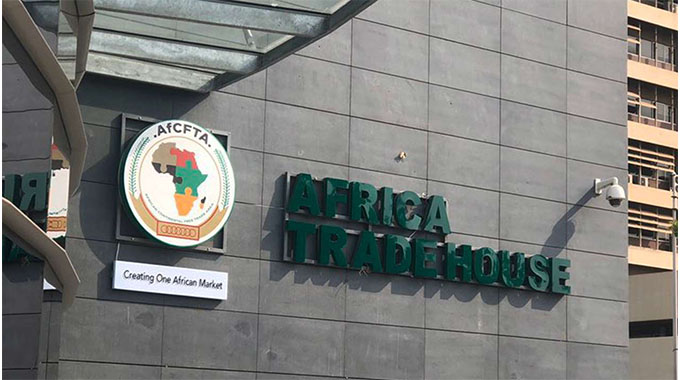Integrate domestic value chains to the region, beyond — Stanbic

Business Editor
THE recent global supply chain disruptions illustrate the urgent need of building domestic value chains integrated into regional and global supply ecosystems as a long-term strategy for sustainable growth of the economy, Stanbic Bank Zimbabwe has said.

Stanbic Bank Zimbabwe
As the continent pushes for the operationalisation of the Africa Continental Free Trade Area (AfCFTA), the Standard Bank subsidiary is optimistic about the benefits of a single market and wants to harness its broad networks and expertise on the ground to play a key role in helping the historic deal take off.
The landmark trade agreement was signed by 54 African countries in Kigali, Rwanda in March 2018 and is aimed at creating a single market for goods, services, and capital in Africa.
It came in force in January 2021 and is one of the best trade platforms for Zimbabwean businesses on the back of the numerous doors it opens.
“Standard Bank is building the finance and trade solutions to help address the tariff and non-tariff barriers required to realise the continent’s ambitions to create an effective single market,” Standard Bank head of trade for business and commercial banking, Mr Philip Myburgh,” has said.
“Beyond aligning legislation and reducing red-tape, a more conducive environment for trade includes developing the manufacturing capabilities to beneficiate products and produce finished goods.
“This includes the ability to manufacture and construct the rail, road and port infrastructure required to move goods between and across vast territories.”
Mr Myburgh was speaking at the recently held AfCTCA conference where Africa’s largest bank by assets committed to driving regional growth and unlocking opportunities across the 20 markets served.
In this regard, the bank has said it supports solutions that are Africa-centric and where the private sector plays a greater role in the health of local and regional economies. However, trade barriers and other protective internal policies remain stumbling blocks.

AfCFTA
Beyond hard infrastructure, access to trade finance remains a challenge. While banks are important players in financing trade across the continent, perennial risks continue to limit commercial credit appetite.
“In this environment, leveraging the ability of Africa’s financial institutions to deploy capital from development finance institutions and sovereigns into effective trade finance, especially for entities that have not yet built up their credit standing, could dramatically expand intra-African trade,” says Mr Myburgh.
Meanwhile, Stanbic Bank has urged local businesses to take advantage of the numerous benefits derived from the AfCFTA.
The bank’s head of trade and Africa China Banking, Mr Tapuwa Nyika, has said local producers stand to benefit from the vast opportunities AfCFTA provides such as the creation of a single market, expected economic boost and trade diversity, collaborative structure and enforcement, eliminating tariffs, settling trade disputes and growing small to medium sized businesses.
“The removal of trade barriers opens the door for Zimbabwean businesses to access a market of over 1,2 billion consumers and expand their operations across the continent,” he said.
“The growth prospects for Zimbabwean businesses posed by this opportunity are immeasurable as they not only include employment creation but generation of the much-needed foreign currency,” said Nyika.
“The AFCFTA is a significant step towards the integration of African economies, and Zimbabwean businesses have a unique opportunity to take advantage of this initiative,” he said.
“By embracing the opportunities presented by the agreement, Zimbabwean businesses can increase their market reach, improve competitiveness, and spur economic growth and development.”
Other areas where banks and the private sector could work with the AfCFTA to begin implementation in 2023, is to identify and then cooperate on leveraging growth in high-potential sectors.

World Bank
Energy and power infrastructure is another area where even limited cross-border co-operation and co-ordinated national investment could have a disproportionally high impact on regional and continental growth.
Free trade or special economic zones have also, to date, proved their worth as drivers of investment, production, and export earnings amongst African economies.
“Importantly for Africa, and critically for the AfCFTA vision of a single African market, the continent’s booming digital ability, supported by a youthful population, presents another avenue for Standard Bank to provide the finance, guidance, and digital platforms and connectivity to grow Africa’s digital revolution into a global investment proposition,” said Mr Myburgh.
“The secret to Africa’s success will be the power of partnerships, awareness of what is needed, and access to trusted information, as no one can do it alone,” he added.
The World Bank estimates that the AfCFTA will increase Africa’s income by $450 billion by 2035 and increase intra-African exports by more than 81 percent. The UN Economic Commission for Africa expects AFCFTA to enable the African economy to reach the US$29 trillion mark by 2050.








Comments